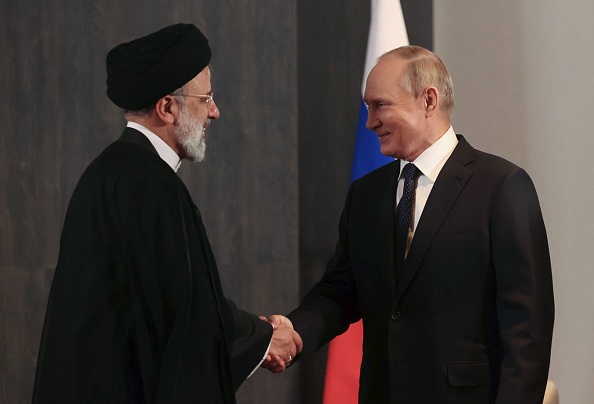During Iranian Foreign Minister Hossein Amir-Abdollahian’s visit to Moscow in late March, Tehran and Moscow once again reiterated their determination to unveil a new 20-year “strategic cooperation agreement” in the near future. Iran and Russia had signed such an agreement back in 2001, which expired in 2021. The next 20-year agreement will very likely center not just around deeper economic cooperation but also military ties, as evident from the growing Iran-Russia relationship in this area. But what drives Iran-Russia relations and what are their limits from the perspectives of both Moscow and Tehran? Can this relationship finally move from a transactional to a strategic one, and can it be sustained? And finally, what do deeper Iranian-Russian relations mean for the rest of the Middle East, and particularly the Gulf States? To discuss these questions, Alex Vatanka, Director of the Middle East Institute's Iran Program, is delighted to host an expert panel.
Speakers
Abdullah Baabood
Chair of the State of Qatar for Islamic Area Studies and Visiting Professor, School of International Liberal Studies, Waseda University
Anna Borshchevskaya
Senior Fellow, The Washington Institute for Near East Policy
Mahmood Sariolghalam
Non-Resident Scholar, Middle East Institute
Alex Vatanka, moderator
Senior Fellow, Black Sea Program; Director of the Iran Program, Middle East Institute
Detailed Speaker Biographies
Abdullah Baabood
Abdullah Baabood is an academic from Oman with wide regional and international experience. Among his many posts, he was a visiting professor at the Middle East Institute at the National University of Singapore and a visiting professor at the College of Humanities and Social Sciences at Hamad Bin Khalifa University in Qatar. He was previously the director of the Gulf Studies Program at the Gulf Studies Center at Qatar University and director of the Gulf Research Centre at the University of Cambridge. His teaching and research interests focus on international relations and international political economy, especially globalization and regionalism. His areas of focus are the states of the Gulf Cooperation Council, their economic, social, and political development, and their external and geopolitical relations.
Anna Borshchevskaya
Anna Borshchevskaya is a senior fellow in The Washington Institute's Diana and Guilford Glazer Foundation Program on Great Power Competition and the Middle East, focusing on Russia's policy toward the Middle East. In addition, she is a contributor to Oxford Analytica. She was previously with the Atlantic Council and the Peterson Institute for International Economics. A former analyst for a U.S. military contractor in Afghanistan, she has also served as communications director at the American Islamic Congress and was a fellow at the European Foundation for Democracy. Until recently, she conducted translation and analysis for the U.S. Army's Foreign Military Studies Office and its flagship publication, Operational Environment Watch, and wrote a foreign affairs column for Forbes. She is the author of the February 2016 Institute monograph, Russia in the Middle East.
Mahmood Sariolghalam
Mahmood Sariolghalam specializes in the political economy of development, U.S.-Iranian relations, and Iranian foreign policy and political culture. His current research focuses on the political psychology of authoritarianism and conceptual roots of Iranian foreign policy. Professor Sariolghalam spent the 2009-10 academic year at Kuwait University and was a member of the Global Agenda Council at the World Economic Forum in 2015-18.
Alex Vatanka, moderator
Alex Vatanka is the founding Director of the Iran Program at the Middle East Institute. He specializes in Middle Eastern regional security affairs with a particular focus on Iran. He was formerly a Senior Analyst at Jane’s Information Group in London. Alex is also a Senior Fellow in Middle East Studies at the US Air Force Special Operations School (USAFSOS) at Hurlburt Field and teaches as an Adjunct Professor at DISAS at Wright-Patterson Air Force Base. He has testified before the US Congress and lectured widely for both governmental and commercial audiences, including the US Departments of State and Defense, US intelligence agencies, and a list of international corporations.
Image by Alexander Demyanchuk/ AFP via Getty Images












